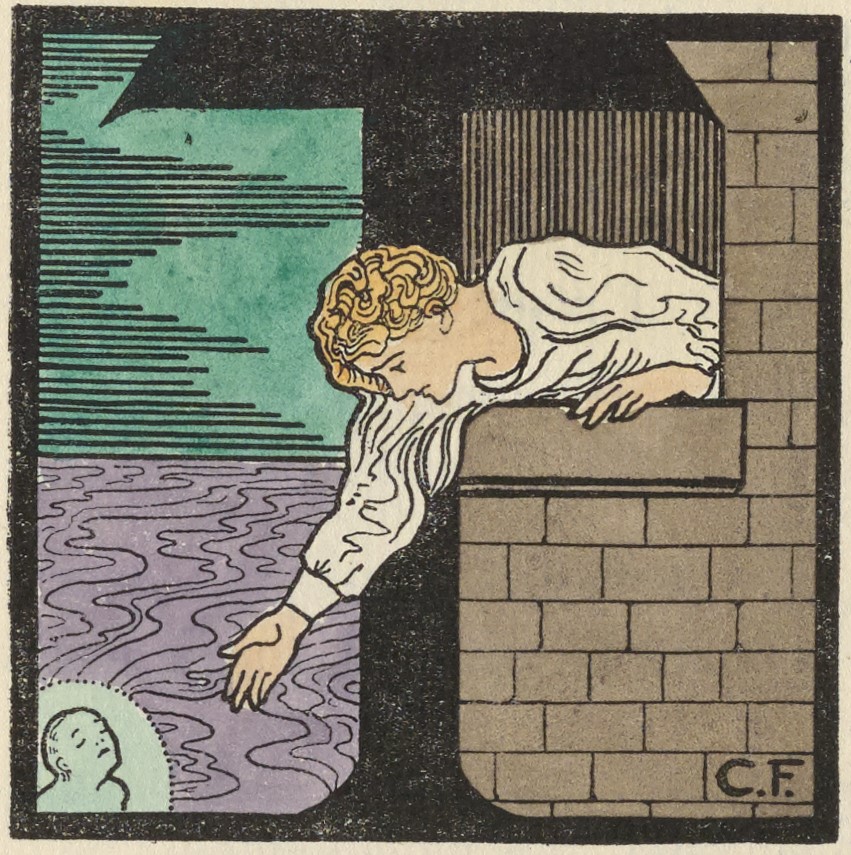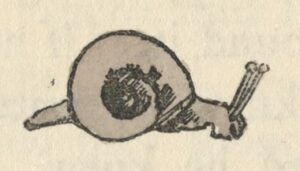WILL O’ THE WISP.

HE cottage stood at the edge of a dreary
swamp. Dark rushes grew at the margin,
and shivered and trembled as the wind
blew through them, seeking to bend them
to the cold surface of the water. Heavy
mists rose slowly from the swamp, mingling
with the twilight, and wreathing themselves
into strange, uncouth forms. And through
the mists across the swamp moved a pale
phantom flame. The child looked through
the cottage window and watched it, and
shivered as he looked. He hated the swamp
and the pale light, and yet it
held him with a strange fascination. Night after night,
when his mother
thought him sleeping, he crept from his bed and sat with his little
pale face
pressed against the tiny window. The light drew him, and he had to go.
He knew what it was though his mother had never told him. The
children had whispered it when he went to the School that lay in the
bright village right away on the other side of the swamp. And ever since,
he had watched night after night the pale light which he now knew was the
soul of his little sister who had died unbaptized. He dared not tell his
mother for she cried when the little nameless one was mentioned, but he
thought the more. It was there to-night, clearer than usual, and the child
sat watching. It must be so lonely, the little wandering soul. He sought
for it often by day but never found it. If he could have spoken to it, if it
could have told him that it knew he watched at the window he might
have been happier. He wished he knew. He pushed back the lattice,
and leaning his face on his hands stared out into the night. There down
away on the swamp was the light. He could see it quite plainly in spite of
the mists across the marshy ground.
The Green Sheaf
“Little baby,” he whispered, “I am watching. Oh! do you hear!
I am watching.”
But the wind only moaned gently round him, bringing no answer
to the little lonely figure.
“Baby!” he called again, and his voice broke with a sob.
“It’s no use,” he said softly, “she can’t hear, I must go.”
Slipping on his clothes he stole softly down the narrow stairs, and
out at the door.
How lonely and dark it was. His lips trembled and the tears
filled his eyes, but he went bravely forward. Now he seemed quite near
the light, but as he moved it went away.
“Baby!” he called, “don’t go, I am coming, baby!”
But still the light moved on.
“Baby, I won’t hurt you, I only want to have you in my arms. You
were so little, and it must be so lonely.”
A little further he went, and stretched out his arms. A cry as the
cry of a wounded curlew broke the stillness of the night. Then silence,
deep, impenetrable, settled over the lonely marsh.
Leslie Moore.
MLA citation:
Moore, Leslie. “Will o’ the Wisp,” pictorial initial by Cecil French. The Green Sheaf, No. 5, 1903, pp. 13-14. Green Sheaf Digital Edition, edited by Lorraine Janzen Kooistra, Yellow Nineties 2.0, Toronto Metropolitan University Centre for Digital Humanities, 2022. https://1890s.ca/GSV5-moore-wisp/
